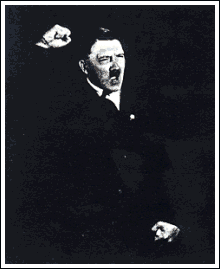EPILOGUE The Allied forces had managed to carry on without me during my incarceration in Germany. The war continued to rage after I was shot down in Holland as part of the second major push into Europe by American and British troops. By late 1944, France and Belgium had been liberated, and the war was carried into the Netherlands and Germany itself. Allied air power annihilated Germany's industrial centers and, in April of 1945, German resistance collapsed. On May 7, Germany surrendered unconditionally, leaving only the Japanese conflict still unresolved. In early August, the U.S. dropped the first atomic bombs on Hiroshima and Nagasaki, and Russia declared war on Japan and Manchuria. Japan announced its surrender on August 14 and the fighting was over! The world's material and human losses were incalculable. Bombing of cities and the German attempts at Jewish genocide had killed millions of civilians. Peace treaties between the Allies and the Axis were signed in 1947 with Italy, Rumania, Bulgaria, Hungary and Finland (whose war with the USSR was a matter separate from the general conflict). A treaty was signed with Japan in 1951 and with Austria in 1955, but differences with Germany have never been formally resolved on paper. I would like to think that the global destruction and massive loss of life that resulted from World War II would be a strong deterrent to subsequent international conflicts, but history has continued to repeat itself. Even today's newspapers are filled with grim accounts of countries poised on the brink of warfare. It is entirely possible that Eva Braun, Adolph Hitler's mistress,
saved my life, as well as the lives of many other Prisoners of War. American intelligence
learned long after Hitler's death that he had decided to use 35,000 Stalag VII-A POWs as Milt Moore and I corresponded for years. I visited with him and his wife in Gatlinburg, Tennessee several times. The Moores operated a motel directly across from the Gatlinburg Civic Center. As often as they could, they put Kathryn and me in their honeymoon suite above the office. Milt died when his son was quite young. During one of our last visits there, I asked Milt's wife if I could tell their son about some of the experiences Milt and I shared in Europe. Milt's son was about twelve years old at the time and we talked for several hours. I hope I shared with him some things about his father that he otherwise would have never known. It's particularly poignant to me to know that Milt died after a long struggle with lung cancer, a disease that was aggravated by, if not caused by, his excessive cigarette smoking while a Prisoner of War in Germany. Kathryn and I traveled to Germany in 1978 and visited 222 Arnuf Street. The apartments had been remodeled into a very nice housing complex. We walked into the center courtyard where I had been 33 years before. The area outside of town where my fellow GIs and I had placed the POW letters on the ground had been converted into a pretty mini-park. We had wanted to visit whatever was left of Stalag VII-A, but were told it had been completely dismantled and the area cleared. Nearby Camp Dachau, incidentally, has been kept intact as a reminder immemorial of the inhumane atrocities that took place during the short rule of the Third Reich. |
 hostages late in
the war. Hitler had instructed General Gottlob Berger of the Waffen- SS to take the
hostages to the mountains south of Munich and hold them there until he could obtain a
satisfactory truce from the allies. If he was unsuccessful, the hostages were to be
executed. Eva Braun learned that Berger opposed the plan, and that even if ordered, he
would not kill the hostages. She decided that it would be best if Hitler gave the signed
orders to Berger rather than to some other officer who would carry out the Fuhrer's
command. She and Berger, both convinced that such executions were morally wrong, entered
into an agreement. She arranged for him to have an appointment with Hitler, and while
Hitler was discussing the matter with the general, Eva brought the typed orders pertaining
to the executions into the room and handed them to the Fuhrer. He immediately and
automatically signed them, and Berger left the room with the documents in hand. Both he
and Eva knew that he could stall off Hitler until the war ended without taking a single
hostage or carry out any executions, and that is exactly what happened.
hostages late in
the war. Hitler had instructed General Gottlob Berger of the Waffen- SS to take the
hostages to the mountains south of Munich and hold them there until he could obtain a
satisfactory truce from the allies. If he was unsuccessful, the hostages were to be
executed. Eva Braun learned that Berger opposed the plan, and that even if ordered, he
would not kill the hostages. She decided that it would be best if Hitler gave the signed
orders to Berger rather than to some other officer who would carry out the Fuhrer's
command. She and Berger, both convinced that such executions were morally wrong, entered
into an agreement. She arranged for him to have an appointment with Hitler, and while
Hitler was discussing the matter with the general, Eva brought the typed orders pertaining
to the executions into the room and handed them to the Fuhrer. He immediately and
automatically signed them, and Berger left the room with the documents in hand. Both he
and Eva knew that he could stall off Hitler until the war ended without taking a single
hostage or carry out any executions, and that is exactly what happened.